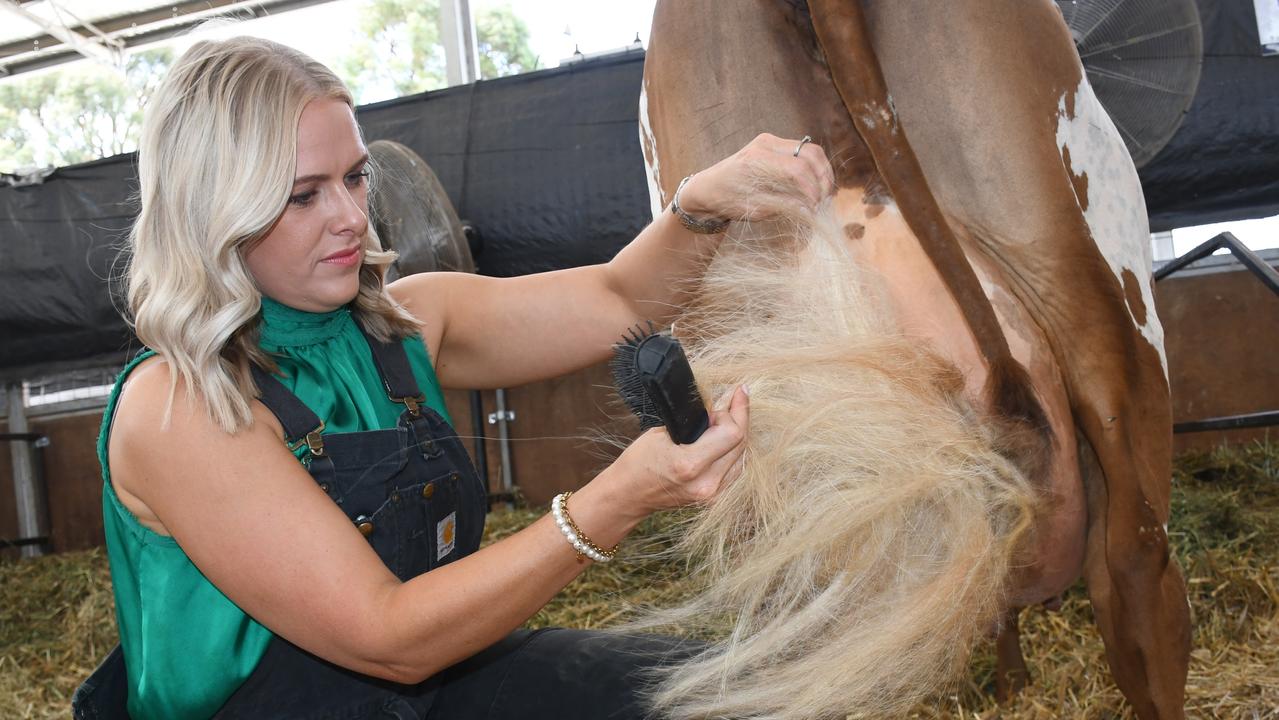With a common trend of club greats being shown the door on the team’s terms, Crows need to buck the trend and show loyalty and gratitude to Taylor Walker
With club greats being shown the door on the team’s terms as of late, Adelaide need to show loyalty and gratitude to one of its modern greats writes Graham Cornes.
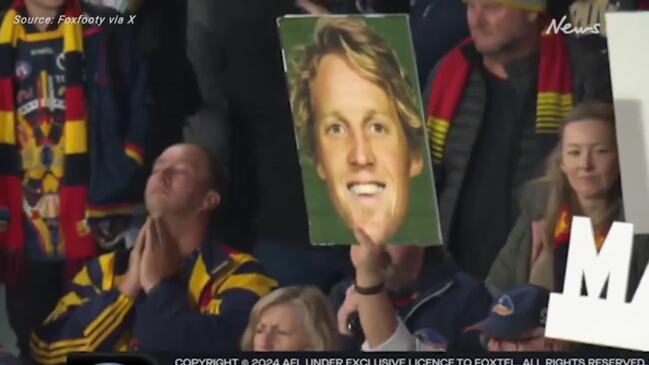
Opinion
Don't miss out on the headlines from Opinion. Followed categories will be added to My News.
IT was easier in the old days – those good old days. There was no draft, no recruiting restrictions, no limited list numbers, no rookie lists, no Irish rookies, no academy players, no next generation academy players, no long-term injury lists. A footy club didn’t have to bid for the son of one of its past players. And the champions of the club could retire in their own time. Rarely were they sacked. They might have been dropped as their powers started to wane but rarely cut from the list completely. Rick Davies was an exception. “Well I’m too old for the under-19’s”, he famously said, when told he had been dropped from Sturt’s league team and wouldn’t be selected in the reserves. It seemed a harsh way to treat one of the club’s greatest players.
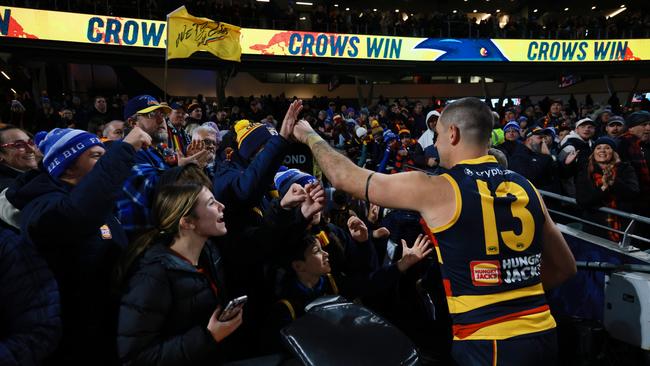
Other greats however were given the opportunity to make their own decision about the end. Russell Ebert after 417 games, finally called time. He was three years into a coaching career and was still playing. Who would dare tell him to retire? Glenelg great Peter Carey had played an astonishing 467 games by 1988 when he decided to hang up the boots; but it was his decision alone. Andrew Jarman played 300 games in a football journey accompanied by the North Adelaide, Adelaide and Norwood footy clubs. He was cut from the Crows in the infamous purge of 1996 but returned to Norwood and won the Magarey Medal in 1997, ten years after he had won his first one at North Adelaide. Then he announced his retirement.
The point is: champions of your club, unless chronically injured, should go out on their own terms. They have earned that right.
So, in this new age, when every spot on an AFL club’s list is precious, what do the Crows do about Taylor Walker? At 34 and increasingly susceptible to age-related injuries like bad backs and soft tissues, and occasionally needing to be “managed”, should the club offer him a one-year contract extension? Absolutely, they should. They owe it to him. Now that may be an unusual thing to say, given that all of us who have played and benefited from the game are indebted to our clubs. But Walker’s leadership at the Adelaide Football Club came when the club was riven by times of tragedy, controversy and unprecedented external pressure and scrutiny. He has earned a special place in the history of the Adelaide Football Club.
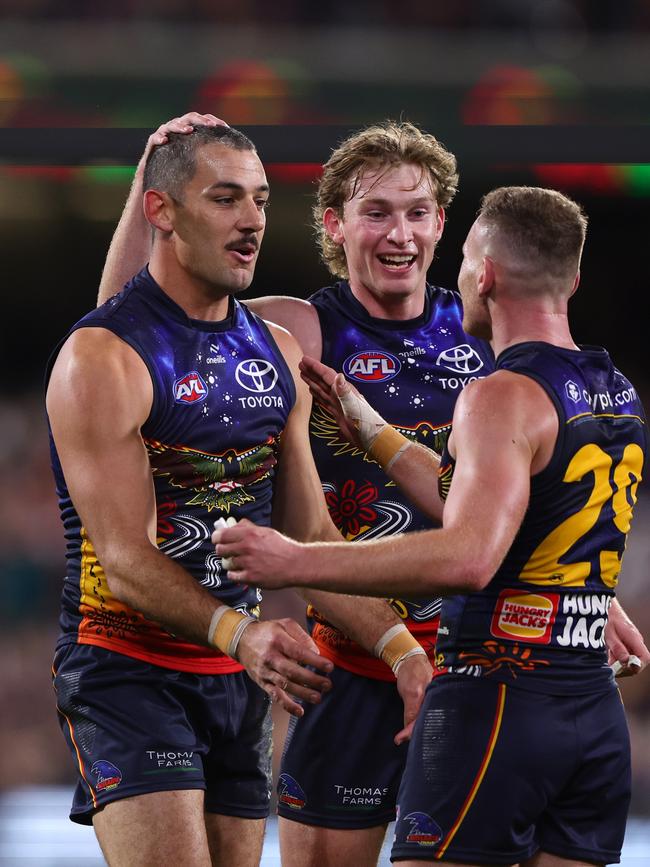
He was in the first year of captaincy when his coach, Phil Walsh was killed in a violent, unspeakable manner. Football teams are occasionally impacted by tragedy and no life is more valuable than another but the shock and the circumstances of Walsh’s passing magnified the trauma. In times of crisis young players look to their leaders and Walker and interim coach Scott Camporeale, held the team together. Incredibly, having finished in tenth position the previous season they made the eight, won the elimination final against the Bulldogs on the MCG, before succumbing to the eventual premiers, Hawthorn, the following week in the second semi-final. It passed us by at the time but on reflection, given the tragedy that occurred in July, it was a truly remarkable achievement.
Reaching the grand final in 2017 should have been the highlight. Walker was three quarters away from being a premiership captain but football fate determined otherwise. Instead of being the highlight, it became a disaster and the beginning of the team’s downward spiral. Nevertheless, he was voted by his peers as the competition’s best captain for the second successive year. Season 2018 was wrecked by foot, hamstring and glute injuries and after sharing the captaincy with Rory Sloane in 2019 he stepped down at the end of the season. The following year, 2020 became the worst in the club’s history, when the team finished in 18th position. Throughout those three years after the grand final, the club and the team were undermined by an ongoing, destructive campaign of negativity related to that camp. Despite the inquisitions resembling more witch-hunt than objective review, the camp was cleared by the AFL (twice) and SafeWork SA, as well as the club’s own integrity standards unit.
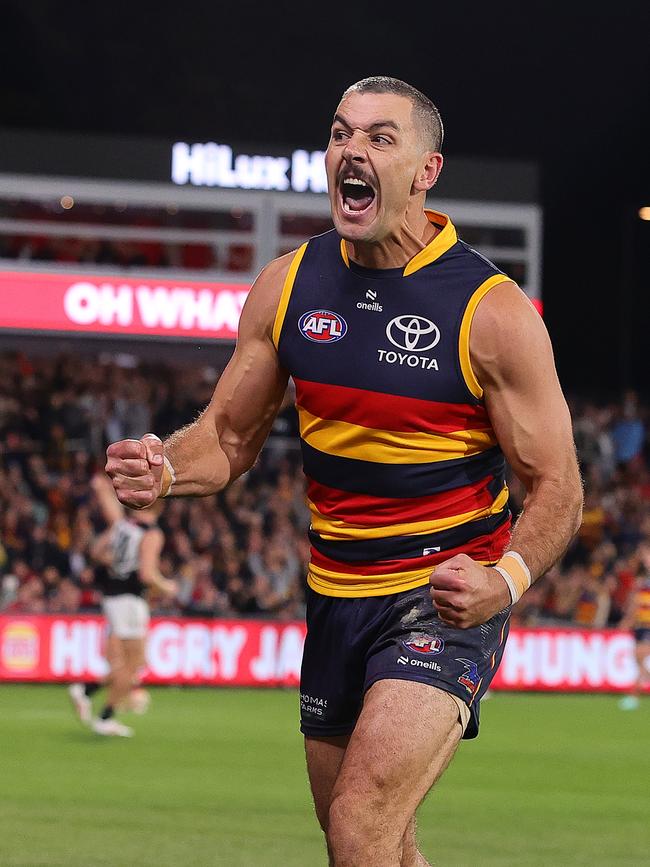
Throughout it all, Walker was supportive and positive. No longer captain by title, he was still a dominant leader of one of the youngest teams in the competition. That period was not without personal tribulation in the form of his injudicious, indirect racist remark. Intended for the ears of a team-mate only, it was overheard by a member of the support staff who lodged a complaint. Instead of hearing the complaint in confidence as AFL protocol dictates, the details were leaked to the media and Walker had to endure the public humiliation of trial by media, a severe penalty and a six-week suspension. Still, he paid the price and determined to win back the confidence of his team-mates, especially those with indigenous heritage, visited and supported local indigenous communities and completed educational programmes.
Only the harshest critic would say his redemption is not complete.
The most positive thing about Taylor Walker’s football performances is that he is ageing well. He had his best season ever in 2023. From his early days he had never been without his critics. His first coach, Neil Craig, all but crushed him with tough love when he wasn’t satisfied with the effort. Neil Kerley was a fierce critic of Walker’s lack of appetite for the contest. Kerley, old school of course, recognised the talent but wanted to see the physicality of the big forward crashing the pack and laying fierce tackles. Sadly “Kerls” never saw Walker at his best in 2023, when all of his talents aligned. It was his best year in a career that has spanned 17 years at the club.
It’s no surprise that the Crows poor performances in the first 15 rounds of this season coincided with injuries to Taylor Walker but last week’s performance, against the talent-laden GWS, showed how important Walker is to the Crows forward structure. It’s a tougher task this afternoon against Brisbane at the Gabba but regardless, a fit Taylor Walker still has a role to play in the continued development of a young team.
Rumours have abounded that he should seek opportunities at other clubs, but that surely is unfounded or carefully planted innuendo. And it would be a mistake. A quick study of some greats of the game who have changed clubs in the twilight of their careers indicate it is a pointless exercise. Dermott Brereton, Doug Hawkins, Alex Jesaulenko, Wayne Carey are but a few whose reputations diminished in those final years after they changed clubs.
Taylor Walker’s decision about his future surely is up to him. He may not play every game next season and he may not be in the Crows next premiership team, but his influence around the club, both on and off the field, will be invaluable to a young developing team. Maybe it’s an outdated sentiment but there is still room in this 21st century for old fashioned loyalty and gratitude.





